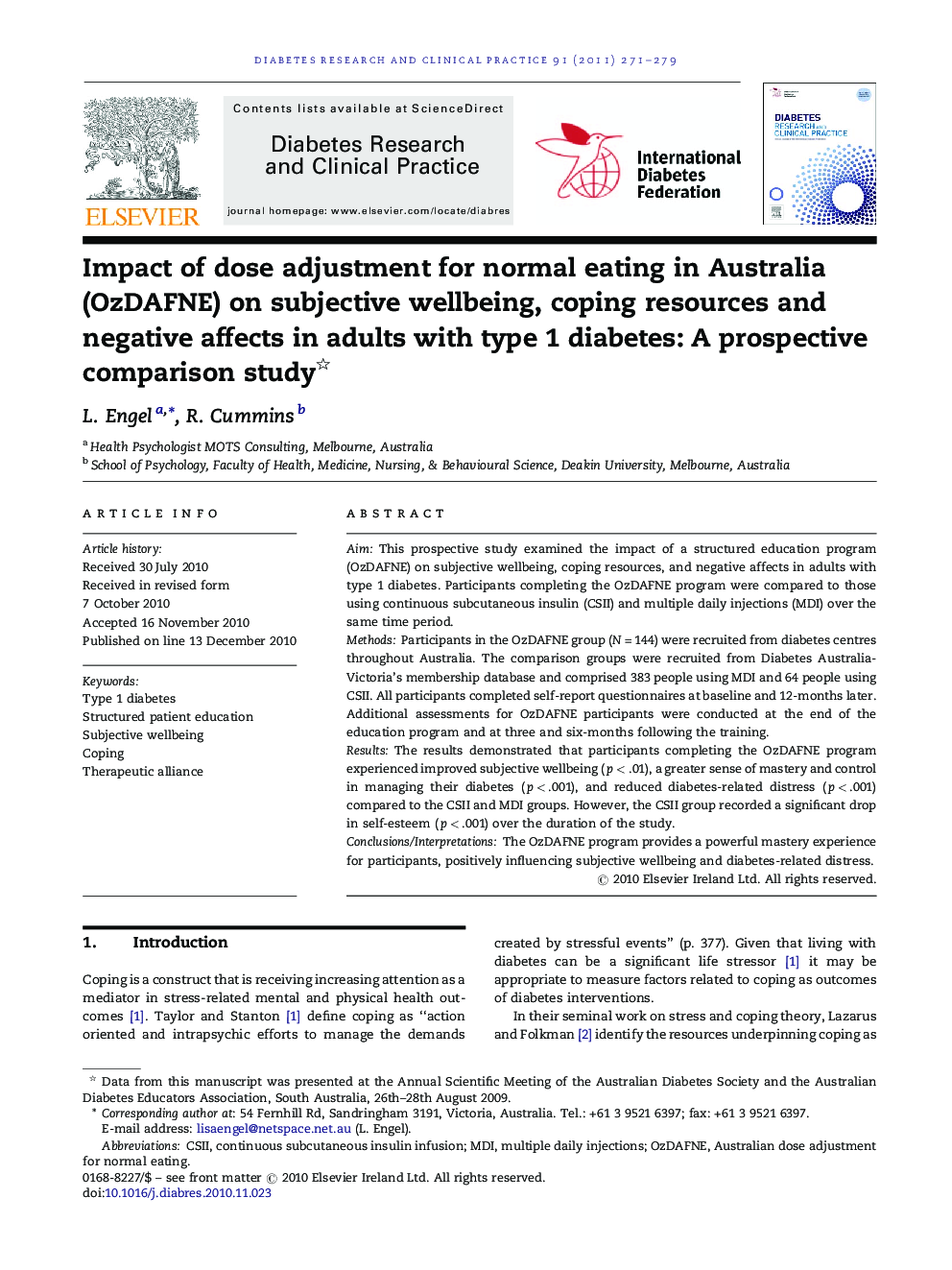| Article ID | Journal | Published Year | Pages | File Type |
|---|---|---|---|---|
| 5900342 | Diabetes Research and Clinical Practice | 2011 | 9 Pages |
AimThis prospective study examined the impact of a structured education program (OzDAFNE) on subjective wellbeing, coping resources, and negative affects in adults with type 1 diabetes. Participants completing the OzDAFNE program were compared to those using continuous subcutaneous insulin (CSII) and multiple daily injections (MDI) over the same time period.MethodsParticipants in the OzDAFNE group (N = 144) were recruited from diabetes centres throughout Australia. The comparison groups were recruited from Diabetes Australia-Victoria's membership database and comprised 383 people using MDI and 64 people using CSII. All participants completed self-report questionnaires at baseline and 12-months later. Additional assessments for OzDAFNE participants were conducted at the end of the education program and at three and six-months following the training.ResultsThe results demonstrated that participants completing the OzDAFNE program experienced improved subjective wellbeing (p < .01), a greater sense of mastery and control in managing their diabetes (p < .001), and reduced diabetes-related distress (p < .001) compared to the CSII and MDI groups. However, the CSII group recorded a significant drop in self-esteem (p < .001) over the duration of the study.Conclusions/InterpretationsThe OzDAFNE program provides a powerful mastery experience for participants, positively influencing subjective wellbeing and diabetes-related distress.
